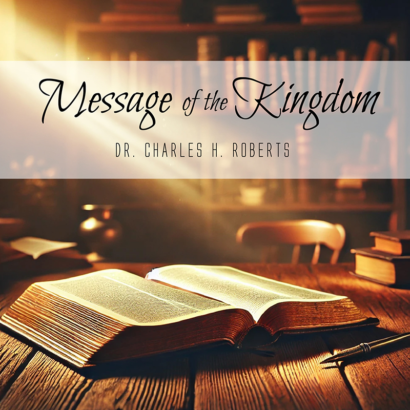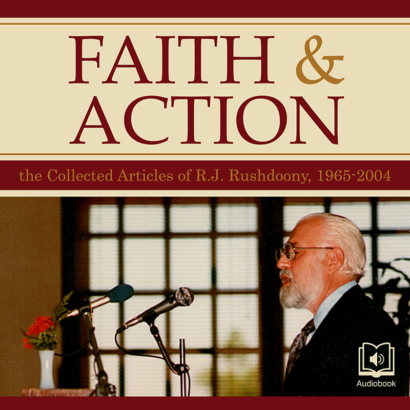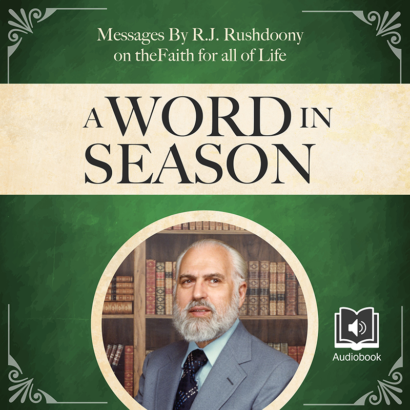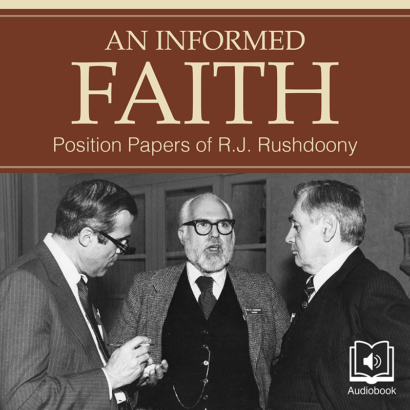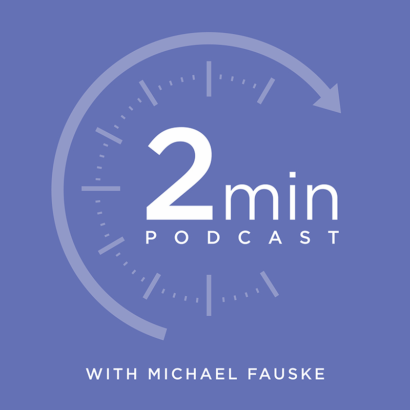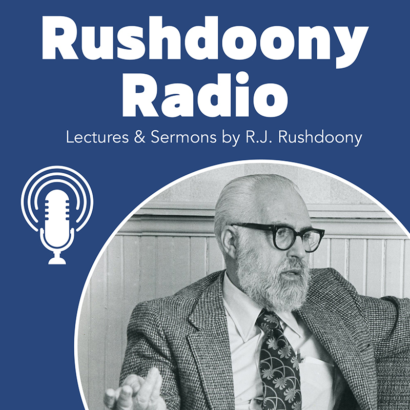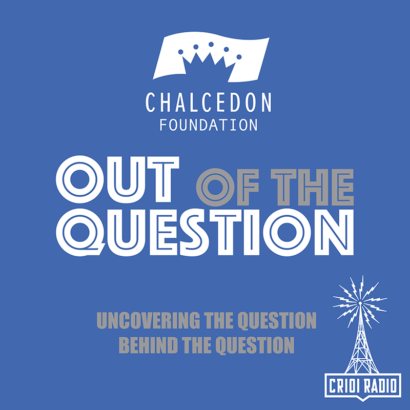
The Fallout and the Way Back
• Apr, 19 2024
In episode 13 of "The Last Kingdom," host Jeremy Walker explores the intersection of apocalyptic themes in media and Christianity. He discusses the "Fallout" game and its new TV adaptation, drawing parallels to biblical narratives like Noah's flood to critique society's fascination with dystopian futures. Throughout the episode, Walker examines human nature's darker aspects as portrayed in media, reflects on real-world violence, and questions the alignment of modern cultural events with Christian values. He advocates for a return to genuine Christian values to foster community and moral integrity, offering a message of hope and redemption, contrasting popular apocalyptic scenarios with a theological vision of a future paradise.
Hosted by
Husband, Father, Pastor, Teacher, Podcaster, and Christian Education Advocate
- Series: The Last Kingdom
- Topics:
Jeremy Walker (00:15):
And welcome back to another episode of The Last Kingdom. I am your host, Jeremy Walker. This is episode number 13 for April 19th, 2024. The title of this episode is The Fallout and the Way Back. We are going to be talking about primarily the new hit TV show, Fallout and the gain associated with it, how it is associated with Christianity and reality, talking about famous pastors being kicked off stages at men's conferences, priests in Sydney being stabbed, protesters blocking airports and bridges, and the rights of personal self-defense.
(01:00):
Well, welcome, welcome, welcome, my friends, back to another episode of The Last Kingdom. I want to start this episode by jumping right off and declaring myself to be a Fallout fanboy. That's right, Fallout came out a very long time ago, back in the late ''90s for computers and eventually moved its way onto consoles like Xbox and Xbox One, but it also has now made it to mainstream television. That's right. Recently, a new TV series on Amazon Prime came out called Fallout, and of course, it's based from the game Fallout itself. The funny thing is that that entire genre, the apocalypse, the end of the world scenario in the specifics of the concept of nuclear war, it's a very popular topic.
(01:55):
You got movies all throughout cinema about the end of the world. If it's going to be global catastrophes, if it's going to be a plague, if it's a famine, if it's a zombie outbreak everybody likes to think about and talk about, or at least give a portrayal of what they see the future being. And of course, it's not good. Nobody portrays it as being good. And there is a question that I think is why I say that Fallout the game, the new TV series, it all kind of comes together, and not only in a relation to Christianity and the Bible, but also in the fact that we are actually in direct correlation with said topics and discussions.
(02:41):
Now, I'm going to get into all that a little bit, not in the sense that some people do where they try to draw analogies to different things or they try to find a biblical meaning in a subject because those, frankly, are just irritating and stupid beyond belief. So that's not what I mean by this subject, that there was a correlation between the concept of nuclear apocalypse and fallout shelters and vaults and Christianity and the current state of affairs in the world today. What I do want to do is start with our Bible passage, Genesis 6:5 through eight.
(03:18):
"And God saw that the wickedness of man was great in the earth and that every imagination of the thoughts of His heart was only evil continually. And it repented the Lord that He had made man on the earth and it grieved Him at His heart. And the Lord said, I will destroy man whom I have created from the face of the earth, both man and beast, and the creeping thing and the fowls of the air for it repenteth me that I have made them. But Noah found grace in the eyes of the Lord." Man, in his current fallen nature, sees man rightly and that much is true. He sees the darkness that is in man.
(04:06):
And another very popular series that came out on Netflix was the Three Body Problem. And the concept with that one, if you don't know about it, you might not want to listen, but it's just a quick explanation of the basic general concept and how it flows into the Fallout concept. And every concept of some kind of a terrible future for mankind was because whenever there was going to be an encounter in the Three Body Problem with a species that was thought to be dangerous, they were going to take over, they were going to destroy humanity, enslave humanity, something along those lines, one of the characters who was going to be the person communicating wanted that to happen. They saw the world, they saw mankind and they said, we need help. And if you're going to come and kind of be an overseer of mankind, well, you can't do any worse. Was kind of the thought and kind of the idea.
(05:06):
All throughout our cinema, our TVs, everything shows that mankind is self-destructive. Everything about mankind is self-destructive. It doesn't matter if it's on an individual level because of man's sin personally. In his family, you can look around at the United States of America and around the world, families are falling apart. We are self-destructive. We destroy our communities. And even, if you look around the US, right now, and the world, we have policies, beliefs, and concepts where we hurt each other continually. There are people who hurt each other on purpose because they believe that certain people don't deserve to live. And of course, there's elitists and all kinds of other concepts out there. We just all went through covid. That's a great example. When it shows that mankind, what levels of mankind can go to that, he just does not care about his fellow man.
(06:01):
So whenever God says something, like what happened in Genesis 6:5 through eight, where man's imaginations were evil continually, and so He was going to wipe everyone out. God knows what He's talking about and we see it. That's why we can't see the future being bright. We can only see man burning the candle at both ends, and eventually, his light in this world will be extinguished. And mankind believes that that's exactly it. Man is a virus, many have said. But are they wrong? Well, they're not wrong. Man is a virus because man is a sinner. Man destroys everything that he touches. That's why the world is cursed. In Genesis, when man disobeyed God, the curse came upon the world and death entered into the world.
(06:56):
After that, man was sent into the world to live. But because of his nature, the only thing he could do was destroy. He could not create. And because of that, we have God, in Genesis 6:5 through eight, angry and upset, grieved at His heart that He even created man. And man had done this not only to himself but to His world and to all their generations they were going to destroy and curse. So what did God do? He flooded the world, absolutely flooded the world, killed everything that had breath in their lungs. So whenever I say there were correlations between what people consider to be a future apocalypse and the current reality of where we live, the concept in Fallout were fallout shelters and vaults, you could say, where inside the vaults they would take certain select persons and put in there everything they would need in order to succeed once tragedy, the apocalypse was over. They were going to wait it out and then they would leave the vaults and then they would replenish the earth. They would reestablish society and community and rebuild.
(08:12):
Well, that's exactly what it was with Noah and his ark, except the difference was we didn't have lots of arks or lots of vaults, only one. And after the apocalypse, the flooding of the entire world where every person was wiped out on purpose by God because of their sin, Noah was set free to then repopulate, replenish and rebuild the world. But was man different just because he survived the apocalypse, the wiping out and flooding of the entire world? No, he was not different. And God said that He was going to have to help man.
(08:50):
So this is where we take a direct breach from how man sees his future currently where we're at in the year 2024. He can only see doom and gloom in the future. For us, we see the fallout as having already taken place back in the flood. Mankind, though still sinful, though still evil, things are getting better. In the apocalypse that people would like to see. There are little bands of people where society is falling apart, people going around and raiding and killing each other. If you haven't watched many TV series about the history of the world, take one like The Last Kingdom, another great TV series to watch about England, or at least the becoming or potentially becoming of England and Danes and the fighting of Scotland and all the other things. But they were just going around murdering each other.
(09:48):
Well, in the wasteland, portrayed by the fallout, that's what you get. No society, small bands, no security, people just murdering people as they want to. Take what they want to, the strongest survive. Cannibalism is a thing that's in the Fallout TV series as being, well, to survive the apocalypse, you have to be able to be a person who can survive the wasteland. Well, do you know where most cannibalism in human history has taken place? It's not in desolate places like the desert. It's in tropical paradises like the islands, the tropical islands. That's right. In places that have every economical resource, every place to the ground that can grow things. Water, beautiful water, fishing. And yet, they decided to eat each other.
(10:39):
And another great series that I like to mention because I am a big fanboy is Firefly. And one of the concepts for that was when did that become fun? There were Reavers in the Firefly TV series and they were men who had kind of supposedly gone rabid at the edge of space and would rape, pillage, and murder and cannibalize people, and that was the concept. When did this get fun? Mankind's history isn't one of looking forward to some kind of apocalypse. It's us growing out of one. When Noah stepped off that boat and was replenishing the world, we have now, for roughly five to 6,000 years, been living in a post-apocalyptic world and one that's getting better, not worse, and it's getting better because of God's plan. He put the rainbow up in the sky after Noah came off the boat, promised never to flood and destroy the world again because of man's sin.
(11:46):
Instead, His plan was going to continue and His plan was to send His son into the world to now correct everything that the first Adam destroyed. He was the second Adam. Where the first Adam disobeyed God, the second Adam obeyed, a perfect son of God. Adam was a fallen son of God and He was going to redeem His people. God had then chosen people that He was going to redeem through His son. All the evil that was still in the world after the apocalypse, the flood, are going to be wiped out. They are going be cleaned off of this paradise and the world itself is going to get cleaned up. We think, right now, that we live in a great place and somehow it's going to get worse in the future. No, no, no, no. We live in a much better place compared to where they did pre-flood where man's evil was without restraint. And there's a reason why God flooded everything.
(12:51):
It was much worse than any TV or movie portrayal could have it. The pre-flood people were devastatingly evil to the likes that we can't possibly fathom what they were like. But we, now today, have been growing since Christ came and the world has been getting better. All these evils have been getting pushed out steadily and consistently. If you look around the world, where is the cannibalism? It's not that it's gone, it's now in the recesses and the shadows of society where it used to be part of its cultures. Slavery, where is it at? It still has its recesses and people know that it's going on, but they don't talk about it. The slave trades and the sex slaves, it still exists, but it has been stamped out and stamped out where it's no longer part of people's cultural identity.
(13:48):
And people have been talking about that concept of colonialism. They're upset that Christianity has marched across the globe for over 2000 years and has been Christianizing the world, taking all the sin and evil that people loved about their cultures, the human sacrifices from the Mayans and the Aztecs and all these people. And they wanted to go back. They would go back today if you'd let them, but Christ had a different plan. This is His world. He is making it clean. He's making it better. And in the future, we don't have an apocalypse to look forward to. We have a paradise to look forward to. This world will be swept clean. It's going to be something that is so far greater we could possibly ever imagine. There's no fears of an apocalypse. That's why we have to have it in TV and movies because it has to be fiction, because it's not reality.
(14:44):
If you look at history, things are growing, things are getting better. Christ is winning steadily, consistently. That little stone that crushed mankind in the story of Daniel is turning into a mountain and it will not stop growing. Now, one man's paradise is another man's hell. And Milton said it was better to reign in hell into serve in heaven. Well, sorry, Milton, but you don't get to choose and you don't get to reign in hell either. Now, he would consider hell to be here and now. Live however I want to here and now while I can. Well, go ahead. Christ is going to hold you accountable in the judgment. You're not going to get away with it.
(15:31):
This is His world. We are either going to be people who are helping Christ or trying to tear down what Christ is building and we're not going to be successful. But as Christians, we know that there is no apocalypse for us where the world is destroyed, mankind is let loose and he's off by himself. And there's these little wanderers that are going to go in the wasteland all by themselves and to make their way through the world all by themselves. No, Christ has come. None of us are alone. Christ is winning and we are marching forward, forward, forward. See now that, if you haven't thought about, it should be how the Christian wakes up in the morning. If your successes are in the past... I remember talking to somebody before about this concept because everybody likes to talk about when they were in high school, they made that famous touchdown. I really did this back then.
(16:29):
But where are their current successes? What are the future successes that they're working towards? If you're not, you're already dead. See, you have to be moving forward consistently, never complacent with where you're at, never complacent with your level of having overcome your sins. If you're a Christian, you should want to get better and better and better and better. And you should want to make this world a better and better place. And that's by spreading the gospel, spreading Christianity. And that's how we are going to help influence and change the world as we move forward for as long as that is, until Christ decides time's up, everybody that did work, rewards all round. And now comes the judgment, evil is wiped away. Death is no more and now a beautiful paradise forever. No, my friends, there is no apocalypse to look forward to, only paradise.
(17:30):
Now, some of the topics I'd like to touch on because while we are waiting for paradise, there is still evil in the world that is being stamped out, and hopefully, by our participated efforts. There was, in news this week, Mark Driscoll, a famous pastor from ages by gone, but he made the headlines again. He was at some kind of men's conference. It's one of those men's conferences where, I think, last year they had a tank come on stage and crushed cars and they're shooting ammunition and just fireballs going up in the air. What that has to do with Christ or masculinity, I don't know. It sounds dumb to me. It sounds like a bunch of four-year-old boys decided to create a conference. But anyways, he decided to stand up and say that he didn't like the fact that there was a pole-dancing man there. Wasn't necessarily a pole dancer from the video that I saw, but more one of those Cirque du Soleil kind of guys. And he decided to reprimand people on stage.
(18:29):
Well, he got sent off by the promoters there, and later on, they brought him back on. They all apologized, and somehow what he said didn't matter anymore. But what got me thinking, what is it about Christianity that makes us Christian? What is it that makes us men? You know what I mean? Is it getting together and getting adrenaline pumped through because we saw tanks and fireballs and bullets? Or is it because we have a fire that's inside of us and that fire is to obey God's commandments? When we hear the preaching, good preaching, good teaching, that sets a fire that makes us leave. Just like if you were in a sermon, or listening to a good podcast, and you were then going to go out and that was going to help impact you moving forward, help you change your life, help you fight sin, help you reform your family, be a better businessman, be a better father, be a better teacher, whatever it is that you are being better. That's the only thing that matters.
(19:29):
If you don't grow in everything that comes to you, then it's just entertainment, just entertainment. Playing Fallout video games and watching TV series and these types of things, this is entertainment. That's what it is. It's entertainment. This stuff is not going to make you a better person. It's just if you are a person who like to fly kites or if you like to play basketball, maybe you like to whittle or you like to cook, they are hobbies, they are forms of entertainment, but that is not going to change who you are or your outlooks on life. Entertainment is fine, but for me, I think it has a big difference between if you're going to have some kind of a conference where you're trying to help men be men, well, that's not what it's about, being a man, entertaining people, but teaching them better how to overcome sin, to be a better father, a better businessman, and to be involved in their community, now, that is something special.
(20:28):
Another topic which was also about a man in Sydney. It was a priest and his name was Mari Mari Emmanuel. Don't know anything about him, generally speaking, except he's some form of Christian Orthodox of some sorts in Australia. During his service, like say Sunday morning service, a Muslim man comes and walks down the aisle and begins stabbing him during the sermon itself. Stabbing him again and again and again repeatedly. Thankfully, he did not get killed by this man. And all the congregation jumped on this man and beat the tar out of him, thankfully, and subdued him.
(21:05):
These are real threats in the world, and we are at war. They know. And it's not the Muslims, it's everybody that's not Christian. It's all lumped into what we call paganism, all of it. And we are at war and we do and should be wise as serpents and harmless as doves, which is, in the intro, I mentioned a sermon about self-defense. Pastor John Weaver. I knew Pastor Weaver from a long time ago. He was very influential in my life growing up as a young man. And I came across his sermons that he had at Reedy River Presbyterian Church. And it's also in the CR101Radio.com website under churches. You can find their church there and the sermons that are also there, but it's on the theology of self-defense. And he goes through, I listened to one of the sermons, I haven't gotten to the others yet, but how people should be armed when they come to church.
(22:04):
And he went through a long detailed, historical account where this was something that happened either from individuals, from churches that wanted or demanded it, and even from small communities in civil governments that did it. Now, most of these were during the times where you might get raided by Indians or whatever. So there was a real chance that, as you gathered together, people might attack you. But it's not a bad idea, for me, I think it's a very good promotion, especially when you have people who are going to walk right into a church service and start stabbing people. Start packing, absolutely. We have the right here, specifically in the United States of America, to bear arms. And if somebody walks into a Christian church anywhere in America, they should be afraid that they're going to get shot if they are trying to kill somebody. That's right, that's what the concept of self-defense is.
(22:54):
If somebody's going to try to kill you, you have the right to stop that person, using lethal force, if necessary. You don't want to get shot in the middle of a church service. And as us have communion when you're done, don't come in trying to stab the preacher and you won't have that problem. So I also highly agree with that concept. Find the sermon if you want to listen to it in detail. Once again, the CR101Radio.com website and look under churches for Reedy River and you'll find it there.
(23:20):
And last but not least, a quick little note about people who are protesters, so they block bridges and airports. And why is this even allowed? Well, first, remember, these people are usually doing these things in areas which are already themselves corrupt. And so you're going to find them in highly blue states or democratic areas where they're facilitating and participating in this as a kind of visual show that they hate America kind of thing and the ruling officials are participating. However, in Florida, better not try that in Florida because in Florida they will arrest you and you can get up to 15 years in jail. So I love Florida. I love living in Florida. If you don't live in Florida yet, might want to think about moving. But anyways, I want to kind of end this episode with that final thought.
(24:11):
The fact that Christians, we as Christians, we are supposed to work on ourselves. We have a future ahead of us that's paradise, not an apocalypse, and we get the opportunity to help build that. So get up tomorrow, fight yourself in sin and help to make this world a better place for spreading the gospel teaching God's commands. Thank you again for joining us.
(24:36):
Jeremy Walker signing off.
More podcasts in series

Does Good "Trump" Evil?
Nov 10, 2024

What Happened to All the Violence?
Oct 21, 2024

Building a Better World
Sep 28, 2024

The Evil of Hero Worship
Sep 21, 2024

Nebuchadnezzar's Proclamation
Sep 15, 2024

Johnny Cash's Middle Finger
Sep 07, 2024

2024 or 1984?
Aug 27, 2024

Train Up a Child
Jun 29, 2024

A Living Dog is Better than a Dead Lion
Jun 23, 2024

No Fate But What We Make
Jun 16, 2024

What is an Educated Child?
May 19, 2024

The Roses of Success
May 12, 2024

Breaking News
Apr 28, 2024

Up From Slavery
Apr 13, 2024

Community Standards
Apr 05, 2024

He Arose
Mar 29, 2024

I Have the Power to Crucify Thee
Mar 22, 2024

The Fear of the Wicked, It Shall Come Upon him
Mar 15, 2024

Love Thy Neighbor, and Hate Thine Enemy
Mar 12, 2024

We Fight Not Against Flesh and Blood
Mar 12, 2024

I Will Fear no Evil
Mar 12, 2024

We are Blessed, You and I
Mar 12, 2024

You Reap What You Sow
Mar 12, 2024

Setting Up and Removing Kings
Mar 12, 2024

A New Heaven & A New Earth
Mar 12, 2024

